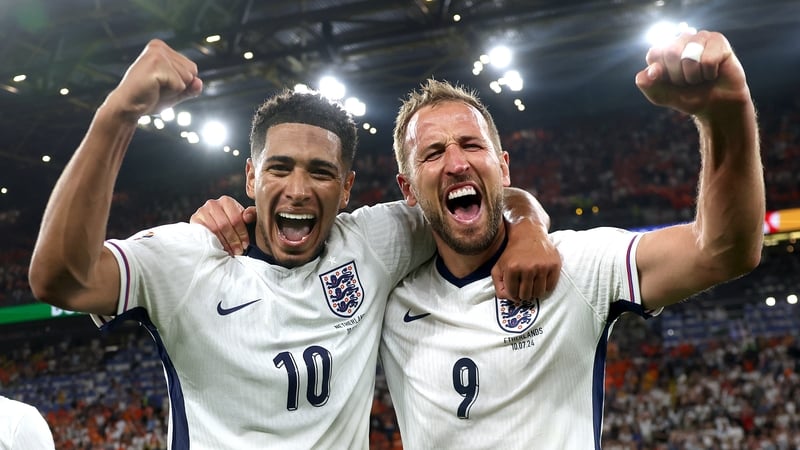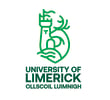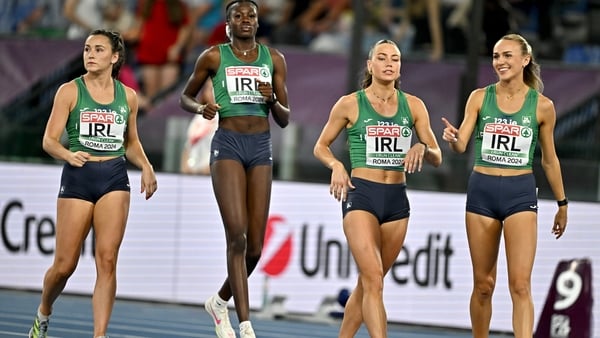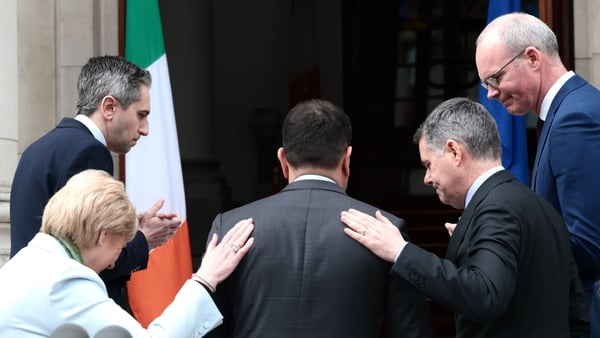Analysis: there are a myriad of reasons from disidentification to marginalisation why so many of us want to see England lose on Sunday
This weekend sees the culmination of Euro 2024. For soccer fans, it brings the viewing extravaganza to an end. When our national team didn't qualify, you might be forgiven for thinking that we had no skin in the game this time around. But as England's fortunes have risen, so too has the sense that there are many among us who really want the winners to be anybody but England. .
While we may be familiar with the concept of identification, many may be unfamiliar with its less famous sister concept, disidentification. If the identification processes allow us to define who we are, disidentification can be thought of as the process that allows us to define who we are not. This can be seen as the basis of Irish - and indeed Scottish and Welsh - support for 'anybody but England’, ABE for the uninitiated. This phenomena is real enough that t-shirts, cups and hats are now widely available.
We need your consent to load this rte-player contentWe use rte-player to manage extra content that can set cookies on your device and collect data about your activity. Please review their details and accept them to load the content.Manage Preferences
From RTÉ Radio 1's News at One, reporter Cian Burns asks people would they support England
Social psychologists think of identification as a subjective feeling and recognise that people sharing a strong sense of national identity can be the basis of passionate support for national teams. Disidentification is quite different. It is not indifference, but rather an active process. Disidentification allows us to actively express our dissimilarity and dissatisfaction from those who support English football. It ultimately allows ABE supporters to distance themselves from English football supporters.
As English speakers, many of us have had the experience while abroad of being mistaken for English. We tend to be quick to correct this misapprehension because of our sense that the reputation of the English abroad is poor. Football has amplified this problem. Supporters of the English national team have been stereotyped as lager louts and violent hooligans. For fear of being seen in the same way by others, we actively reject this identity label. Indeed, research tells us that disidentification is most likely to arise in cases involving a poor reputation.
But identifying with ‘anyone but England’ isn’t just about our concerns about what others think. Again, this type of disidentification tends to arise when there is a concern that ‘we’ are being marginalised and even mistreated by the group from whom we disidentify.
We need your consent to load this rte-player contentWe use rte-player to manage extra content that can set cookies on your device and collect data about your activity. Please review their details and accept them to load the content.Manage Preferences
From RTÉ Radio 1's Liveline in 2021, listeners discuss the pros and cons of supporting England in the soccer
For those in the smaller nations of the Atlantic archipelago that includes Britain and Ireland, support for ABE then can be seen as arising from a long-standing sense of having concerns ignored. In this way, the phenomena that is ABE can be seen to reflect the more unfortunate elements of the relational dynamics between Ireland, Northern Ireland, Scotland, Wales and England.
Despite our many commonalities, it is the case that we ourselves don’t want to acknowledge our shared attributes with the English people. This doesn’t go away when Irish people move to England. Indeed, it can become more evident.
The video clip of the ITV commentary team observing England equalising against Slovakia is instructive in this regard when Roy Keane has a muted response to the goal compared to the other commentators, all English supporters,. Despite years of involvement in the English Premiership and a lifetime living in England, he showed little joy when Jude Bellingham scored to keep England’s tournament hopes alive.
Roy Keane reacting to Jude Bellingham's last minute equaliser vs Slovakia
— IrishPropaganda🇮🇪⚽️ (@IrishPropaganda) June 30, 2024
😭🤣 pic.twitter.com/Odxn41YaWm
National consciousness is typically backgrounded by the more pressing demands of everyday life, but national identity concerns are always there lurking in the background. National consciousness comes alive during mega sporting events such as the Euros. The contested and often dysfunctional nature of relations within these islands polarises national identity positions during these times. The ABE phenomena reflects this too.
But the reality is that the history of migration and intermarriage means that there are many people within these islands who have both English and Irish heritage. The largest migrant group in Ireland is the English and, like Roy Keane, many Irish people in England reside happily in England.
Still, Sunday will be a trying day for many families up and down the country. There will be families who pursue magnanimity in the interests of good relations. I know of one couple where an English parent is ‘being permitted’ to support their team from their Irish kitchen. There are many Irish living in Britain who will watch the final from their English homes in the company of their children. Spare a thought for Irish parents of children who support England.
We need your consent to load this rte-player contentWe use rte-player to manage extra content that can set cookies on your device and collect data about your activity. Please review their details and accept them to load the content.Manage Preferences
From RTÉ 2fm's Dave Fanning Show in 2021, journalist Philip Nolan on why Irish people should be supporting England
Psychologically speaking, we are all a rich blend of our personal and social identities. When an intergroup context moves into the foreground, as it can during sporting competitions, we can lose ourselves in the concerns of the group.
But when the final whistle is blown, we will still have to maintain those personal relationships with our English friends and family. Supporting England will remain a bridge too far for many of us, but we would all be well advised to channel our inner Roy Keane and dial down our support for anybody but England.
Follow RTÉ Brainstorm on WhatsApp and Instagram for more stories and updates
The views expressed here are those of the author and do not represent or reflect the views of RTÉ






